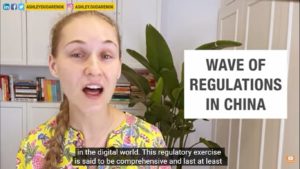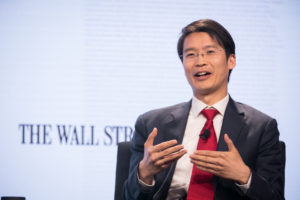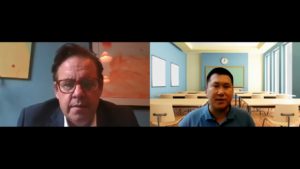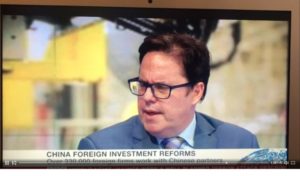China is not only the world's fastest-growing market for meat consumption, but it also has a long-standing tradition of using meat alternatives, says
China-lawyer Mark Schaub at
the China Law Insight. China's government can use that tradition as it tries to change the country's diet as they develop rules and regulations, he adds.
Mark Schaub:
Long before Beyond Meat was found in 2009 and Impossible was launched in 2015, China already had Gong Delin (功德林) a brand born in 1922 and producing noodles with mock meats. Aimed at Buddhists, or the curious, Gong Delin and others of its ilk have been passing off tofu as meat for almost 100 years. The writer recalls visiting in early 1990s and being harangued whether one could tell the difference between mock duck and real duck. Spoiler alert – a valiant effort but no duck.
In 2020 however, alternative meat is not just for Buddhists and the curious. These groups have been joined by a far bigger group: health conscious Chinese consumers. China is the world’s biggest meat market but is also a market where consumers are increasingly making purchase and lifestyle decisions based on health. Accordingly, alternative meat companies are all looking how best to penetrate the world’s biggest market. China consumes approximately 28% of the world’s meat and even more impressively 50% of the world’s pork. Meat consumption has followed GDP per capita growth. As China became richer it consumed more meat.
However, the Chinese authorities do not see increasing meat consumption as a public good. Indeed when the ‘Food-based Dietary Guidelines’ <中国居民膳食指南> were last revised in 2016 one of the aims was to cut meat consumption by 50% as a way to promote a healthier lifestyle.
Accordingly, 1.4 billion consumers being weaned off meat is a target too large to ignore for international players but what are the main challenges?
The National Health Commission of the PRC is the body that usually approves new food ingredients. The National Health Commission has been actively holding meetings with associations such as the China Meat Association on the topic of artificial and plant based meats. These meetings have emphasized the ingredients and the over-all health goals stemming from the dietary guidelines. There are already several Chinese alternative meat companies that have set standards on ingredients and general practices.
International alternative meat companies will need to ensure their ingredients conform to Chinese requirements. Certain ingredients may not have been formally accepted in China.
Which Standards Apply? It is crucial to distinguish between ‘plant-based’ and ‘artificial’ meat products. There are several Chinese institutes and associations seeking to lead the way to set more standardized classifications and practices. On June 24, the Chinese Institute of Food Science and Technology (CIFST) published its first draft on plant-based meat aimed to create standard and guidance for the industry. The draft specifically focuses on plant-based meat products and provides details as to definitions, classifications, technical specifications and other requirements.
The National Health Commission holds technical exchanges with domestic companies in respect of meat alternatives. However, the National Health Commission has recognized that a fair policy and market supervision are important issues confronting this young industry. Wang Shouwei, director of the China Meat and Food Comprehensive Research Center has advised that national standards for artificial meat are currently being prepared. It is expected that national standard for vegetable protein meat which started in 2019 will come out by the end of 2020. This will be an important step on the way to formal legislation. However, international companies should bear in mind that guidance and drafts do illustrate the current thinking of the Chinese authorities. Accordingly, even though such policies are not mandatory it is important to be aware of them.
Intellectual Property – Alternative meats such as plant-based and artificial meats are quite a topic with respect to IP. The production methods for producing plant-based meats, for example, can be patented. Additionally, the feel, smell, and taste for those products can be a trade secret (similar to Coca Cola’s recipe). The name of the company and product line can be protected by trademarks, and the appearance of the food may be protected by design patent and/or copyright. Indeed it seems the entire gamut of IP protections are available. There was a successful case for protecting smell as a trademark in the US. However, protecting the smell, taste or feel so far is seldom (if at all) tested under Chinese trademark law.
Food Safety – To sum up, there are Chinese associations and institutions formulating industry standards that in the near future might be included when regulations regarding plant-based and artificial foods are formalized. As of right now, any plant-based or artificial foods company must comply with the Food Safety Law of the People’s Republic of China. This includes for example a conducting a “food safety risk assessment” for new food products.
Saying China has a long history of consuming meat alternatives would be an understatement. It is a staple of Chinese diets and widely available along the entire food value chain from production to distribution, restaurants to consumers. Because of this, China’s regulatory purview is in a strong position to further cover alternative meats compared to other countries. However, the opportunity is not without its challenges. IP will be a necessary legal hurdle and the competition for the minds (and stomachs) of Chinese consumers is fierce.
More at the China Law Insight.
Mark Schaub is a speaker at the China Speakers Bureau. Do you need him at your (online) meeting or conference? Do get in touch or fill in our speakers' request form.
At the China Speakers Bureau, we start to organize online seminars. Are you interested in our plans? Do get in touch.
Are you looking for more consumption experts at the China Speakers Bureau? Do check out this list.







